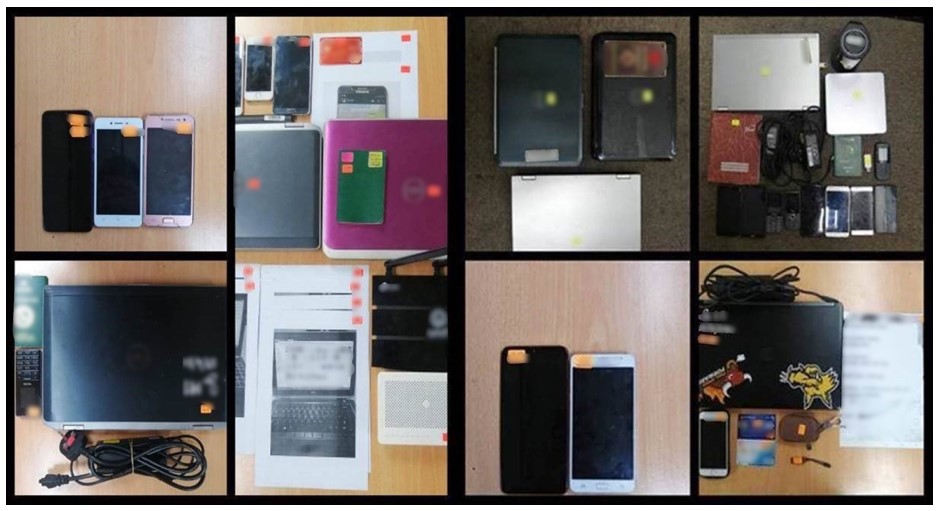Singapore — A transnational Internet love scam syndicate was recently arrested during a joint investigation by the Singapore and Malaysia police.
S’pore and M’sia police team up to bust transnational Internet love scam syndicate.
The Commercial Affairs Department (CAD) of the Singapore Police Force (SPF) has partnered with the Commercial Crime Investigation Department (CCID) of the Royal Malaysia Police to jointly cripple a transnational Internet love scam syndicate based in Malaysia, said the SPF in a press release on Sunday (Jun 27).
A female victim lodged a police report in Feb 2021, indicating she might have fallen prey to an Internet love scam.
The victim revealed that her online boyfriend of one year had allegedly sent her a parcel containing a handbag, shoes, and other accessories.
She later received a phone call from a purported Malaysian “delivery company” requesting her to transfer S$1,000 to a bank account for delivery charges.
After the woman deposited the money, the deliveryman allegedly claimed that he did not receive the amount and asked for further payment in cash.
When the victim requested further details and verification of his identity, the deliveryman was unable to provide information on his company and address.
The woman then filed a police report on the incident.
The Anti-Scam Centre of the SPF subsequently began an investigation on the case, and through close collaboration with the CCID, a syndicate was identified.
On Jun 23, officers from the CCID conducted simultaneous raids at two locations in Kuala Lumpur, Malaysia and arrested six Nigerian men and one Malaysian woman, aged between 20 and 46 years, for their suspected involvement in internet love scams and parcel scams.
Eight laptops, 17 mobile phones, three thumb drives, two ATM cards, two modems, two Wi-Fi routers and two passports were seized during the raid.
A 57-year-old woman was also arrested in Singapore, while a 34-year-old man was investigated for allegedly assisting in the transfer of the syndicate’s criminal proceeds.
The syndicate is believed to be linked to at least five other cases in Singapore involving S$64,000 in losses and another eight cases in Malaysia involving RM3.7 million (S$1.19 million) in losses.
SPF announced that the woman would be charged on Jun 29 for money laundering while investigations against the man are ongoing.
Anyone found guilty of acquiring or transferring criminal benefits under the Corruption, Drug Trafficking and Other Serious Offences (Confiscation of Benefits) Act faces up to 10 years’ imprisonment, a fine of up to $500,000, or both.
“Notwithstanding the global lockdown in response to the pandemic, criminals continue to prey on the unwary. They have ramped up their abuse of the internet to target victims across international boundaries. To keep Singapore safe, the Singapore Police Force collaborates with like-minded international counterparts like the Royal Malaysian Police to deny criminals safe refuge,” said CAD director David Chew.
“Law enforcement will find and bring them to justice, wherever they may hide. I would like to thank Director CCID, Commissioner Dato Mohd Kamarudin Bin Md Din and his officers from the Intelligence and Operations Division of CCID for their strong support and commitment in tackling cross border scams.”
Members of the public are advised to be careful when befriending strangers online, said the SPF.
They should also be wary when asked to send money to bank accounts of people they do not know.
Those with information on such scams can call the police hotline at 1800-255 0000 or submit information online at www.police.gov.sg/iwitness. /TISG
Read related: Netizens accuse S’porean streamer Kiaraakitty of love scam involvement in leaked phone call

